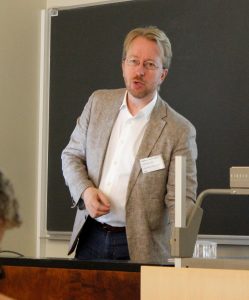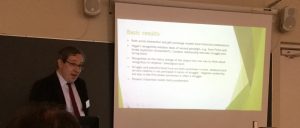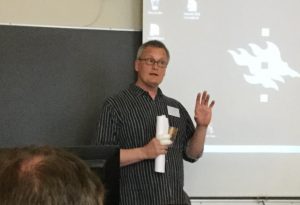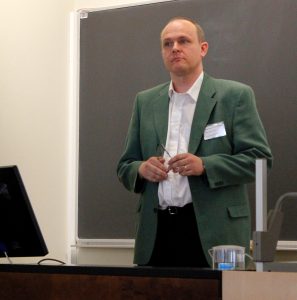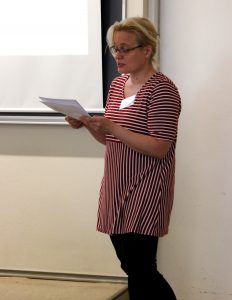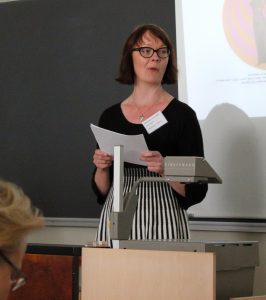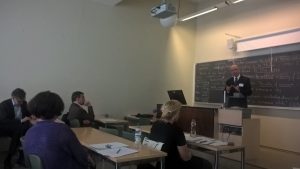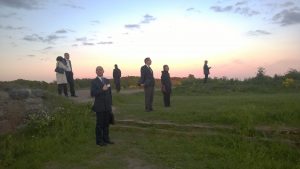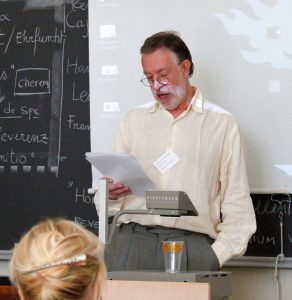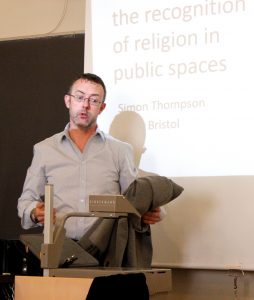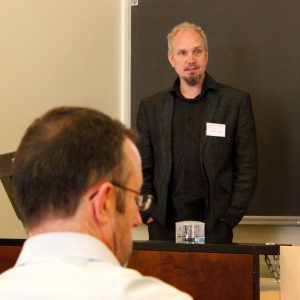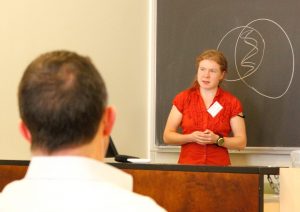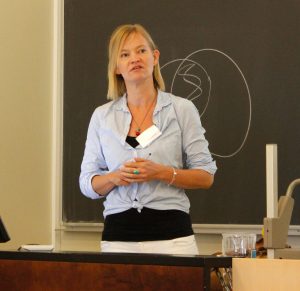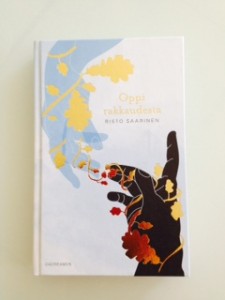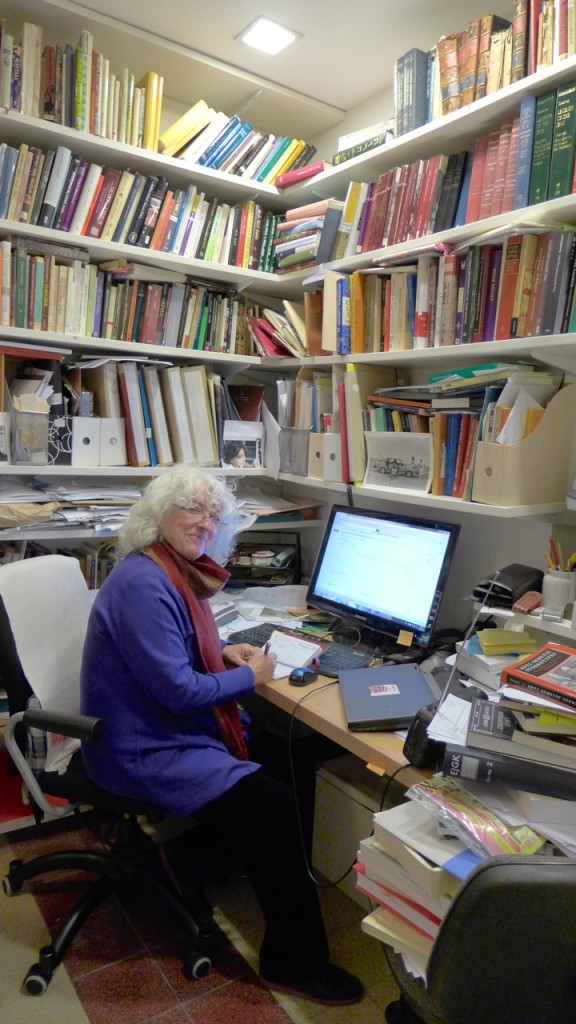REFLECTIONS ON RECOGNITION
26–28 May 2016, University of Helsinki. Organized by the Centre of Excellence Reason and Religious Recognition (Academy of Finland). This conference was organized around an international scholarly book project edited by Maijastina Kahlos, Heikki J. Koskinen and Ritva Palmén.
I RECOGNITION: NOVEL ARTICULATIONS
Heikki Ikäheimo (University of New South Wales): Conceptualizing Causes for Lack of Recognition – Capacities, Costs and Understanding
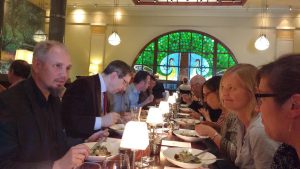 Lunch break in Salutorget. Arto Laitinen and Risto Saarinen (left); Ericka Turcker and Miira Tuominen (right). Photo: Heikki Ikäheimo
Lunch break in Salutorget. Arto Laitinen and Risto Saarinen (left); Ericka Turcker and Miira Tuominen (right). Photo: Heikki Ikäheimo
Risto Saarinen (University of Helsinki): Is Recognition a Gift? Do Gifts Express Recognition?
Heikki J. Koskinen (University of Helsinki): Mediated Recognition: Suggestions towards an Articulation
II HISTORICAL STRUGGLES FOR RECOGNITION
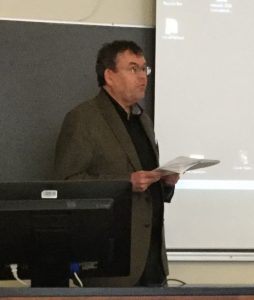
Hartmut Leppin (Goethe-Universität Frankfurt am Main): Early Christians and the Politics of Recognition
Niko Huttunen (University of Helsinki): Early Christians and Philosophy: Seeking Recognition in the Greco-Roman Culture
Maijastina Kahlos (University of Helsinki): On the Road – Late Antique Argumentation for Religious Recognition
III MEDIEVAL INTERSECTION
Ritva Palmén (University of Helsinki): Shame, Self-Assessment and Recognition in the Middle Ages
Andrea Aldo Robiglio (KU Leuven): Aquinas and the Course of Recognition
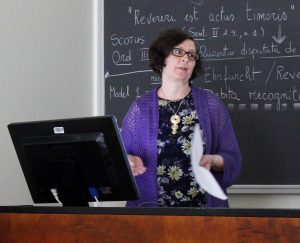
Virpi Mäkinen (University of Helsinki): Recognizing the Property Rights of Pagans and Infidels in the Political Thought 1200–1400
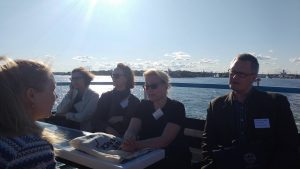 Going to the Congress Dinner (Walhalla in Suomenlinna). The organizers of congress from the right to the left: Heikki J. Koskinen, Maijastina Kahlos and Ritva Palmén (Photo: Heikki Ikäheimo)
Going to the Congress Dinner (Walhalla in Suomenlinna). The organizers of congress from the right to the left: Heikki J. Koskinen, Maijastina Kahlos and Ritva Palmén (Photo: Heikki Ikäheimo)
Some of the participants in the sun set in Suomenlinna.
(Photo: Arto Laitinen)
IV ROOTS OF RECOGNITION THEORY
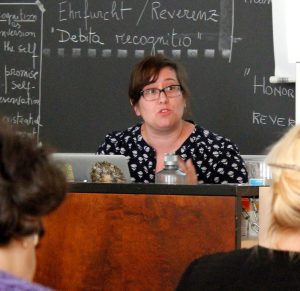
Ericka Tucker (Marquette University): Spinoza, Religion and Recognition
Paul Redding (University of Sydney): Hegel’s Actualist Metaphysics as a Framework for Understanding his Recognition-Theoretic Account of Christianity
V LIMITS OF RECOGNITION
Simon Thompson (University of the West of England): The Recognition of Religion in Public Spaces
Arto Laitinen (University of Tampere) & Teea Kortetmäki (University of Jyväskylä): On the Natural Basis and Limits of Social Recognition
Miira Tuominen (University of Jyväskylä): Justice without Recognition? – Porphyry on Abstinence from Injuring Animals
Suomenlinna in the sun set. (Photo: Heikki Ikäheimo)
More photographs can be found under this link in the Reason and Recognition blog.
For more information on the conference, please contact the organizers: maijastina.kahlos@helsinki.fi, heikki.koskinen@helsinki.fi, or ritva.palmen@helsinki.fi

